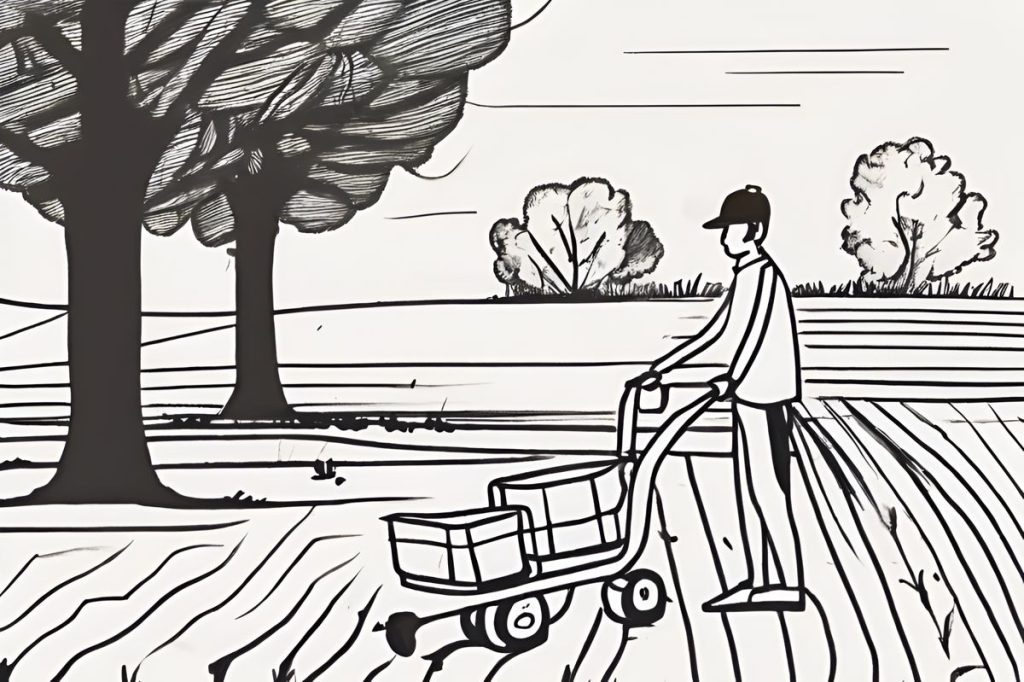Cyprus has celebrated two decades of EU membership by making significant strides in agriculture and environment, adopting EU directives to enhance competitiveness and protection. The country has improved sustainable farming, promoted organic practices, conserved water, protected species, diversified agriculture, and utilized renewable energy, resulting in balanced economic growth and ecological preservation.
What are the significant strides Cyprus made in agriculture and environment after 20 years of EU membership?
Cyprus has made significant strides by adopting EU directives that enhance agricultural competitiveness and environmental protection. Key advancements include:
– Improved sustainable farming techniques
– Promotion of organic farming
– Water conservation efforts
– Protection of indigenous species
– Agricultural diversification
– Renewable energy in farming
These efforts have led to balanced economic growth and ecological preservation.
Agricultural and Environmental Progress
Since joining the European Union 20 years ago, Cyprus has made significant strides in both agriculture and environmental policies. The island nation, known for its picturesque landscapes and agricultural heritage, adopted various EU directives that have bolstered the sustainability of its natural resources. Agriculture Minister Maria Panayiotou highlighted these advancements during the 20th-anniversary celebrations, emphasizing the development of a more competitive agricultural sector that goes hand in hand with environmental protection.
Investments in sustainable practices have allowed Cyprus to balance its economic growth with ecological preservation. The integration of European standards has introduced advanced farming techniques that increase yield while minimizing environmental impact. Initiatives such as the promotion of organic farming, water conservation efforts, and the safeguarding of indigenous species are prime examples of Cyprus’s commitment to green policies.
Strengthening the Economy Through Sustainability
The implementation of EU policies has not only improved Cyprus’s environmental standing but also its market competitiveness. By focusing on sustainable management, the country has seen its agricultural economy thrive. Diversification in agricultural products, along with an increase in quality due to adherence to stringent EU regulations, has made Cypriot goods more appealing on the international stage.
The use of renewable energy sources in farming practices is another area where Cyprus has taken significant steps. This not only reduces the carbon footprint of agricultural operations but also decreases dependency on imported fuels, thereby fortifying the island’s energy security. The country’s efforts have shown that economic development does not have to come at the expense of the environment, setting a model for others to follow.
Weather Patterns and Natural Challenges
Despite its progress, Cyprus continues to face natural challenges that test the resilience of its agricultural sector. The island has witnessed extreme weather events, with storms occasionally hitting the capital’s center and other regions. Such events underscore the importance of the ongoing efforts to fortify agricultural and environmental policies against climate change. The emphasis on sustainable resource management is also key in ensuring that the country can withstand and recover from these natural adversities.
The government’s infrastructure investments aim to mitigate the effects of such events, ensuring that vital systems are in place to prevent significant losses. Flood prevention systems, emergency response protocols, and robust communication networks are some measures that help the country maintain stability in the face of unpredictable weather patterns.
Looking Forward
As Cyprus continues to navigate its journey within the EU, the focus remains on adapting and innovating its agricultural and environmental practices. The country’s commitment to sustainable growth aligns with the broader goals of the EU, seeking harmony between human activity and nature. The ongoing transformation of Cyprus is a testament to the enduring benefits of EU membership, reflecting a future-oriented approach that promises a better quality of life for its citizens and a healthier environment for generations to come.
The progress made in the past two decades sets the stage for continued advancement, with the Cypriot government and its people working together to uphold the principles of sustainability, innovation, and collaboration within the European framework. As the country looks ahead, the integration of cutting-edge technology and the promotion of sustainable living and farming practices will remain pivotal in shaping the future of Cyprus’s agricultural and environmental landscape.
What are the significant strides Cyprus made in agriculture and environment after 20 years of EU membership?
Cyprus has made significant strides by adopting EU directives that enhance agricultural competitiveness and environmental protection. Key advancements include:
– Improved sustainable farming techniques
– Promotion of organic farming
– Water conservation efforts
– Protection of indigenous species
– Agricultural diversification
– Renewable energy in farming
These efforts have led to balanced economic growth and ecological preservation.
How has the integration of European standards benefited Cyprus’s economy?
The integration of European standards has improved Cyprus’s environmental standing and market competitiveness. By focusing on sustainable management, the country has seen its agricultural economy thrive. Diversification in agricultural products, along with an increase in quality due to adherence to stringent EU regulations, has made Cypriot goods more appealing on the international stage.
What natural challenges does Cyprus face in its agricultural sector despite its progress?
Despite its progress, Cyprus faces natural challenges such as extreme weather events that test the resilience of its agricultural sector. The government has taken measures to fortify agricultural and environmental policies against climate change, including infrastructure investments in flood prevention systems, emergency response protocols, and robust communication networks.
What is Cyprus’s future outlook on agricultural and environmental practices within the EU framework?
As Cyprus continues to navigate its journey within the EU, the focus remains on adapting and innovating agricultural and environmental practices. The country’s commitment to sustainable growth aligns with the broader goals of the EU, seeking harmony between human activity and nature. The integration of cutting-edge technology and the promotion of sustainable living and farming practices will be pivotal in shaping the future of Cyprus’s agricultural and environmental landscape.

